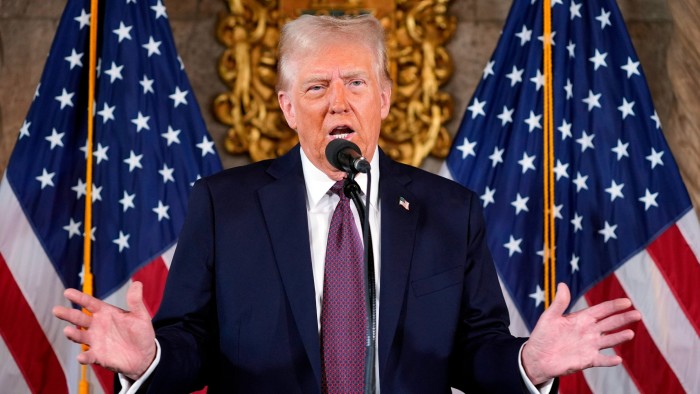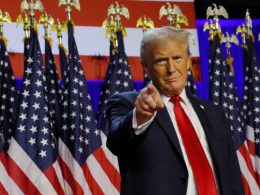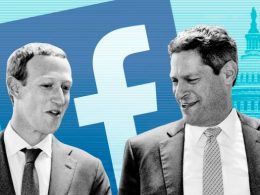Unlock the White House Watch newsletter for free
Your guide to what the 2024 US election means for Washington and the world
Even before his return to the White House, Donald Trump has demonstrated just how disruptive his second term threatens to be. In a Mar-a-Lago press conference this week, the president-elect declined to rule out the use of force to take US control of Greenland and the Panama Canal. He suggested “economic force” might persuade Canada to become the 51st state of the US. Knowing how much weight to place on Trump’s words has always been a challenge. But his newly expansionist rhetoric is unsettling American allies.
To suggest that America might buy Greenland, as Trump first did in 2019, is not in itself absurd. There are historical precedents for such deals, and some past US officials have had similar ideas. The island’s attractions include its mineral wealth and a strategic location close to Arctic shipping lanes and natural resources that a warming climate is opening up. The push among its now largely self-governing citizens for independence from Denmark, its overseer since the 18th century, is expected to figure prominently in elections in April. It is up to Greenland’s people, however, to decide their future, and negotiate whatever agreements they see fit, free from external pressure or interference.
For Trump to casually entertain using military or economic coercion as part of land grabs against Greenland or the territory of any other neighbours or allies is dangerously wrong-headed. It risks undermining western democracies’ contention that Vladimir Putin’s military effort to retake control of Ukraine — or any potential move by Xi Jinping’s China on Taiwan — is an intolerable breach of international law. It will buttress the view in the global south that the US and its allies cynically adjust the narrative about when force is justified to suit their own interests.
Since the US has signed treaties acknowledging Danish sovereignty over Greenland, and Panama’s over the Panama Canal, any sign that Washington no longer feels bound by its commitments gives cover to others to decide likewise. Most damagingly, as France’s foreign minister observed this week, Trump’s language hinted at a return to the “rule of the strongest”, or the idea that big powers can dictate the future of smaller ones — as Putin’s Kremlin has argued for years. Indeed, it risks planting ideas in the minds of the Russian and Chinese leaders that Trump might be open to territorial carve-ups.
His supporters may argue that to raise such alarms is to take Trump far too seriously; that the president-elect was merely musing, entertaining his base, or trolling his counterparts — which in the case of Canada’s outgoing leader Justin Trudeau he has done repeatedly. Foreign leaders, they might add, will know not to read too much into his stream of consciousness. Yet resurrecting his designs on Greenland will fuel suspicions that Trump is intent on getting his way this time — intensified by his son Donald Jr’s ostensibly “private” visit to the island on the same day.
Foreign leaders, moreover, are apt to believe what their counterparts actually say more than any back-room assurances that they should not be taken at face value. France and Germany treated Trump’s statements sufficiently seriously that both released statements stressing the inviolability of borders.
If the incoming US leader takes any steps to act on this week’s musings, his second presidential term promises to be tumultuous indeed. If he continually makes similar assertions without following through, foreign counterparts will learn to discount them. But what happens then if Trump does have a serious message, or warning, to deliver? A US president whose words lack credibility will make the world an even more dangerous place.
Source link









